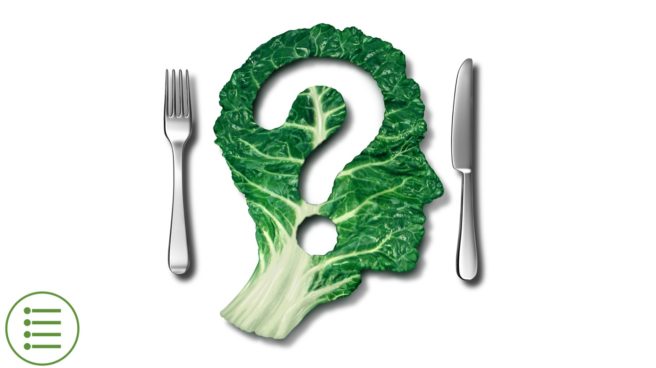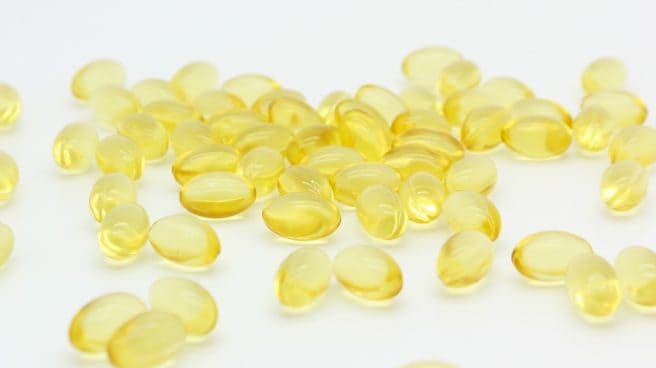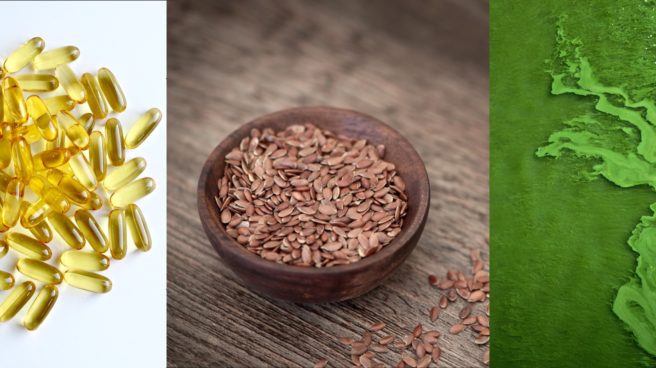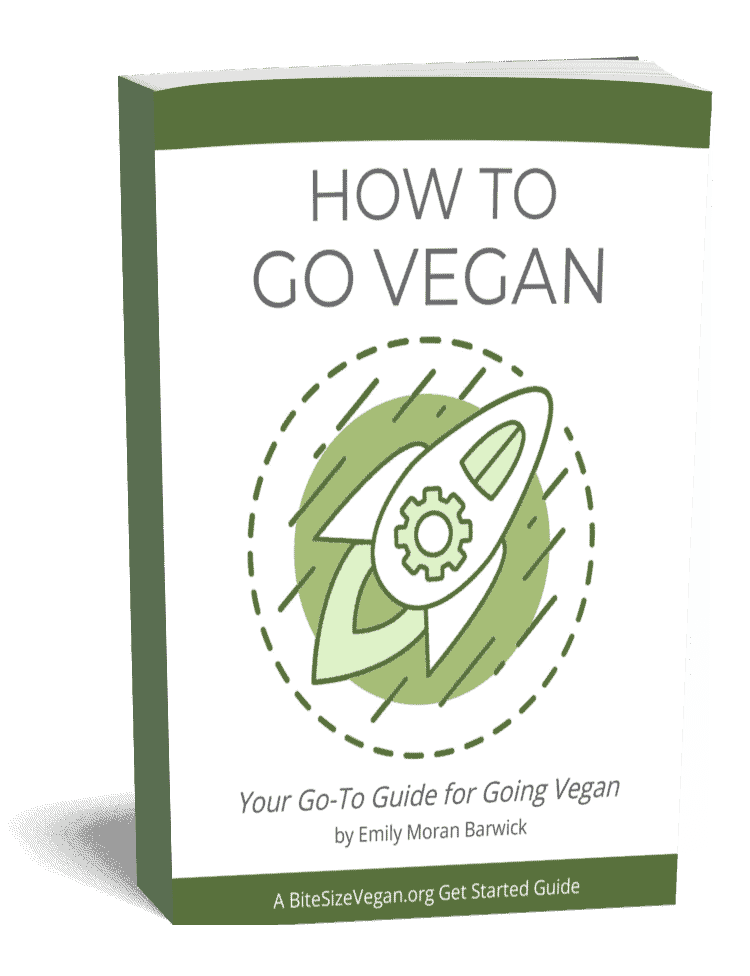Worried about getting enough Omega-3s on vegan diet? In this interview, Dr. Michael Greger guides you through the basics of Omega-3 fatty acids, provides plant-based sources, and busts long-standing myths about fish oil.
How to get Omega-3 fatty acids on a plant-based diet is a common nutritional concern for new vegans and people considering going vegan.
What are plant-based sources of Omega-3? Where do you get Omega-3 if you don’t eat fish? What if you’re recommended to take a fish oil supplement?
In order to address concerns about getting enough Omega-3 on a plant-based vegan diet, I decided to bring in someone who really knows his nutrients: Dr. Michael Greger of NutritionFacts.org.
Introducing Dr. Michael Greger & the Vegan Nutrition Concerns Series

Dr. Greger is a licensed general practitioner specializing in clinical nutrition, an author, and an internationally-recognized speaker on nutrition, food safety, and matters of public health.
This interview is the second in the Vegan Nutrition Concerns Series with Dr. Greger. This series addresses common nutrient-specific concerns related to a plant-based diet, and touches upon the health impacts of animal products.
Dr. Greger on Omega-3s in a Plant-Based Vegan Diet
The following transcript of my interview with Dr. Greger (from the video above) is edited for clarity, order, and readability.
What Are Omega-3 Fatty Acids?
Dr. Greger: Omega-3s are essential fats. We have to [incorporate] them into our diet, as opposed to other fats that our bodies can make on their own. And these essential fats are found in…concentrated in…flax seeds, walnuts, chia seeds, and hemp seeds, and there are some in dark green leafy vegetables.
These are the short-chain Omega-3 fatty acids called alpha-linolenic acid (ALA) and our bodies can actually elongate these short-chain Omega-3s into the long-chain called marine Omega-3’s: DHA (docosahexaenoic acid) and EPA (eicosapentaenoic acid).
Algae: How to Get Omega-3s on a Vegan Diet (Or Any Diet)
Dr. Greger: These long-chain Omega-3s aren’t found naturally [in fish], but actually are made by algae in the ocean. That’s where the fish get it from; the fish don’t make it either. The fish get it from the algae.
And so, if we wanted to get a long-chain source of Omega-3s (DHA, EPA) directly in our diet, we’d cut out the “middle fish” and take algae-based supplements. So then you get the Omega-3s without the industrial pollutants that have so contaminated the aquatic food chain—[and] even distilled fish oil capsules.
Daily Intake of Omega-3 for Brain Health
Dr. Greger: This [consumption of Omega-3] would be predominantly for brain health, not heart health as, disappointingly, the fish oil supplements and these long-chain Omega-3s have not reduced risk for cardiovascular disease. Advice to increase your meals of fatty fish does not seem to be as cardioprotective—or cardioprotective at all—compared to early studies that point in that direction.
But for brain health—a third of our brain, by weight, is DHA—this long-chain Omega-3. So…yes, we can make it, but can we make enough for optimal health? That’s still a question that’s up in the air.
We maybe [can’t make] enough for two brains—so women before conception may want to get a direct source of DHA in their diet, which will be algae-based regardless of what they think about animals.
Algae-based is the only way you’re going to get a contaminant-free source of long-chained Omega-3s.
So, start taking a DHA supplement and, particularly as we get older it might be a good idea to get a long-chain of Omega-3 in our diet. I recommend 250 mg of algae-based DHA every day.
Comparing Omega-3 in Vegan & Omnivorous Diets
Dr. Greger: If you do actually measure long-chain Omega-3 levels in the general U.S. population, vegans have the same level that omnivores and the rest of the population do. But that’s because no one really eats fish here in the U.S. For optimal levels, we probably need to do better. The only contaminant-free sources are algae-based.
Omega-3 vs. Omega-6
Dr. Greger: The ratio [of Omega-3 to Omega-6] matters in the conversion process. If you’re getting a direct source of DHA for example, then you don’t really have to worry about your ratio. But they compete with each other for the same enzymes that elongate these Omega-3 fatty acids.
So If you have a lot of Omega-6 in your system, then the little Omega-3 you got in flax seeds or walnuts is kind of pushed to the back of the line. You make more long-chain Omega-6s. So if you’re relying on these terrestrial plant-based sources, it’s a good idea not to consume Omega-6-rich oils and junk food.
Major Plant-Based Sources of Omega-6
This is really where you get the major sources of Omega-6: cottonseed oil, corn oil, sapphire oil, sunflower oil. These aren’t healthy foods for anybody, but particularly in people who want to optimize that elongation process; you want to stay away from those foods.
In Closing…
I hope you enjoyed hearing from Dr. Greger on the topic of how to get Omega-3 on a plant-based vegan diet.
As Dr. Greger so aptly pointed out, animal products have nutrients we desire because animals get them from eating plants. So cut out the “middle animal” and go straight to the source to get the pure nutrients without the problematic tag-alongs like cholesterol.
I’d love to hear from you: what’s been your experience with Omega-3s in your diet? Let me know in the comments!
— Emily Moran Barwick
Get Started
Please note that when it comes to your health and nutrition, there is no substitute for the guidance of a trained medical professional, especially if you have any medical conditions or complications.
Finding a plant-based provider can be challenging, depending on your location and health insurance (or lack thereof). In the accordion below are online directories for plant-based providers. I hope to expand the list to include ones that serve more countries. If you know of any additional directories, please let me know!
Plant-based medical provider directories
Please note: in listing these directories, I am not recommending or endorsing them or any health care providers listed within them.
- The Physicians Committee for Responsible Medicine (PCRM) (Worldwide)
- Plantrician Providers (U.S.)
- Plant-Based Health Professionals (UK)
- Plant-Based Canada (Canada)
- Vegan Friendly Registered Dietitians (Worldwide – telehealth) from Challenge22
Do you know of other directories? Especially ones serving more parts of the world? Please let me know!
MORE FROM THE VEGAN NUTRITION CONCERNS SERIES:
- The Crime Of Raising Vegan Kids | When Diet Is Deadly
- How NOT To DIE: Foods That Add Years | Dr. Michael Greger
- Deadly Nutrition: The REAL Dietary Killers | Dr. Michael Greger
- How to Get Carnitine, Carnosine & Creatine on a Vegan Diet | Dr. Michael Greger of Nutritionfacts.org
- How to Get Iodine on a Plant-Based Vegan Diet | Dr. Michael Greger of Nutritionfacts.org
- How to Get Zinc on a Plant-Based Vegan Diet | Dr. Michael Greger of Nutritionfacts.org
- How to Get Vitamin B12 on a Plant-Based Vegan Diet | Dr. Michael Greger of Nutritionfacts.org
- How to Get Vitamin D on a Plant-Based Vegan Diet | Dr. Michael Greger of Nutritionfacts.org
- How to Get Iron on a Plant-Based Vegan Diet | Dr. Michael Greger of NutritionFacts.org
- How to Get Calcium on a Plant-Based Vegan Diet | Dr. Michael Greger of Nutritionfacts.org







Thank you for this. I worked in a vitamin/herb store for many years and I am so sick of the fish oil hype. And let’s not forget krill oil — or as I would tell customers, whale food and they need it, not us.
nice. yep- it’s a *huge* industry with nothing but hot air around it :)
Hi Emily,
Cronometer is so addicitive! I’m really enjoying entering all my foods and seeing the nutrients rack up. It’s so great to see that even my pretty average vegan diet is meeting all my nutritional needs :) Also very impressed to see that it has British favourite Marmite listed!
i feel ya! it really is addictive :) and so glad they have that in there- i’ve been impressed with the inventory as well :)
I take Ovega, a supplement that derives EPA and DHA from algae. Does Dr. Michael Greger recommend a specific supplement? Thank you.
He does say algae is the source to use!
I’ve searched all over for an algae “brand” recommendation from Dr Greger. You didn’t happen to get one from him or have one for me? I would be happy with either. Just so many damn choices.
I’m concerned about contaminates associated with algae. Which supplement companies test for contaminates, are manufactured in GPM certified facilities and don’t go rancid fast (safe)?
I am soooo confused!
What foods do contain these VEGAN omega’s?
;can u or someone please plesase tell which algae “brand” do u use for omega 3’s DHA and EPA ?
or which brand or company did the doctor greger recommened ?
,
Hi Saral. The one I have heard good things about and believe I ran by Dr. Greger (but I’m not 100% sure on that!) is this one. Hope that helps!
I’m very confused by the recommendation of a algae based omega as well. Most of the ingredients in these contain oils as well as carrageenan and modded food starch ? These don’t seem to be healthy things to supplement with. Any suggestions on brands that don’t include these ingredients? Thanks in advanced .
Hi there! I just updated the very base of the post as you’re not the first person to ask me this :) I put the link at the base of the post but for ease of finding it, it’s this brand. Please do note the “caveat” I have added to the end of the post, however. I’ve personally had no problems with this supplement and tend to be hypersensitive to oil and a number of things :P Hope that helps!!
Hi Emily,
When you got that stupendous omega-3 score from devouring lettuces, were you limiting nuts, seeds, grains, avocados, and other things containing a lot of omega-6?
Thank you,
Robert